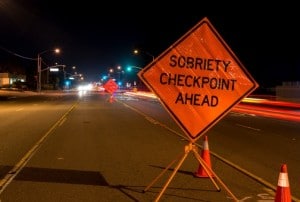
-
I have to perform field sobriety tests (FSTs) if the officer asks me to, right?
Wrong. You are under no obligation to perform FSTs when asked to do so. You can, and should, politely decline to perform the tests. These tests are highly subjective, have not been validated scientifically to establish impairment by alcohol, and are designed for you to fail. Studies have shown that many sober people have difficulty performing the tests. Studies have also shown that police officers have difficulty accurately predicting which individuals have consumed alcohol based solely on field sobriety tests.
-
Police officers who are investigating me for DUI have to read me my Miranda rights, don’t they?
Not necessarily. Miranda rights only need to be given if (1) you are in custody and (2) after being placed into custody the police question you in a way that will elicit criminal testimony. The U.S. Supreme Court has held that investigatory questions asked while you are detained (e.g., how much have you had to drink, when did you start/stop drinking, etc.) do not require Miranda rights. Also, if the police simply arrest you for DUI and do not question you further, Miranda rights are not required.
-
Breathalyzers and blood tests are accurate, so I really can’t fight the charges, right?
Wrong. While breath and blood tests for alcohol levels involve sophisticated machines, mistakes can still happen. You need a thorough, aggressive DUI attorney who is familiar with the science behind these machines. I can look for mistakes, inaccuracies, chain of custody issues, sample contamination, and other issues that might throw the accuracy of your test results into question and lead to a dismissal or reduction of the charges.
-
I can’t fight the DMV license suspension, can I?
Yes, you can. But you must request an administrative hearing within 10 days of your arrest. If you request a hearing, I can represent you at the hearing, subpoena the arresting officer for testimony, subpoena records and documents, and challenge the DMV’s evidence to fight your suspension. Remember, the system is rigged against you. The DMV hearing officer presiding over your hearing is both prosecutor and judge. You need to level the playing field by having an attorney assert and fight for your right to retain your driver license.
-
Do I have to take the breath test the police give at the scene?
No, you do not. This test is commonly called a Preliminary Alcohol Screen (“PAS”). Unless you are under 21 or are already on probation for a DUI related offense, you do not have to take the PAS. You should politely decline to take the PAS and instead choose between the blood or breath test when you are taken to the police station or jail. Some CHP patrol units are equipped with an “Evidential Breath Test” (EBT) that serves the same purpose as the standard Breathalyzer test at the station. You are required by law to take the EBT; if you refuse, you face potentially stiffer penalties from the DMV and from the court if you are convicted.




